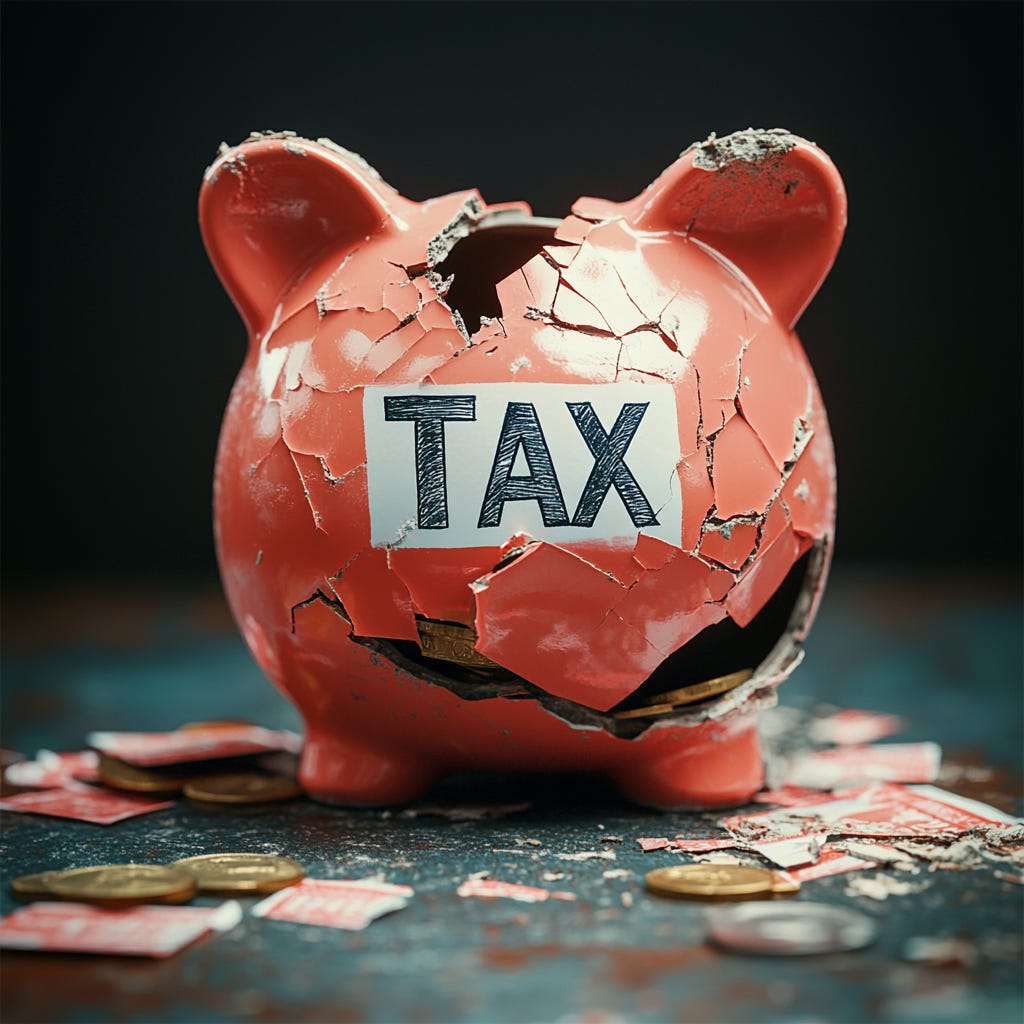The Tory tax trap
The struggle of low-tax politics in a rising demand world
If there is one thing almost all the factions of the Conservative Party can agree on, it is reducing taxes. Indeed, being the party of low taxation has become the sole uncontested principle. It was the basis for the economics of Sunak's manifesto, and it has become the primary vector of attack against the new Labour government. Almost every approach to reinvigorating the party has also coalesced around it. Right-wing analysts have blamed the party's inability to keep taxes as a share of GDP down as a reason for defeat and reversing this as a key to its future.
For the Conservatives, low taxes have a pragmatic and principled appeal. It chimes with the party both in terms of belief and self-interest. Not wanting to pay more tax has an obvious self-interest, especially if your party is based on the sort of voters who tend to be net contributors to the Treasury. But it also has an ideological appeal – based on images of self-reliance and letting people make their own decisions with their own money.
Within the various Tory groups, it is a cross-cutting idea. The more economically One Nation types generally see cutting taxes on the poorest as the best way to help them. This found fruition, for example, in the Cameron/coalition era push to raise the income tax threshold. The more economically dry favour reducing taxes on the rich as a way to encourage growth, a commitment which proved the political undoing of the Truss project. Get a dozen Tories in a room, and there may be little they agree on – but only the boldest would ever suggest taxes should be higher rather than lower.
This belief has been cemented by the party's electoral history. Tory mythology has intertwined cutting taxes with the success of the Thatcher era. It is unquestioningly assumed that slashing them will promote growth and will deliver electoral gains, perhaps even dominance. This is undoubtedly going to be reinforced now that the party's greatest-ever defeat has come off the back of taxes rising to their highest post-war level. The party will want to reclaim its mantle of that of low taxes in the hope this delivers the same success as before. The problem is, however, that economic reality might be reshaping what "low tax" means in ways that the Conservatives find uncomfortable to campaign on.




